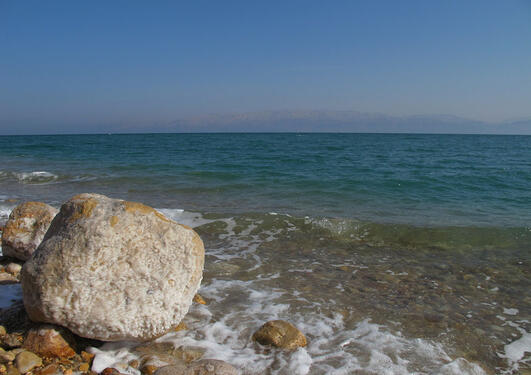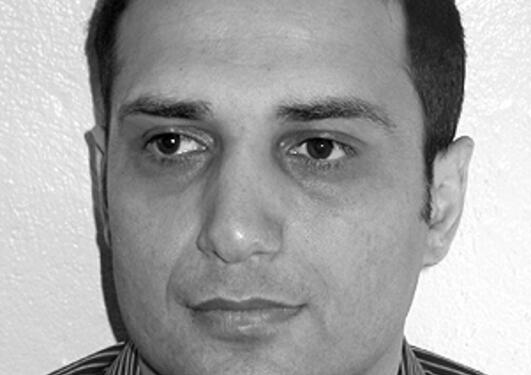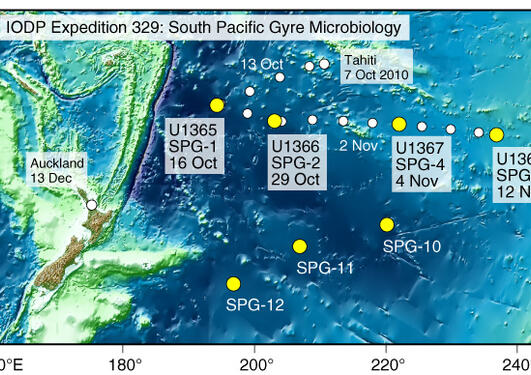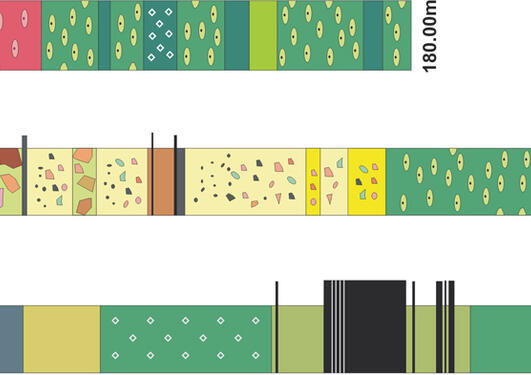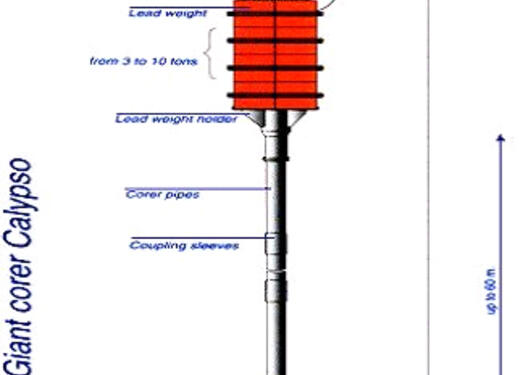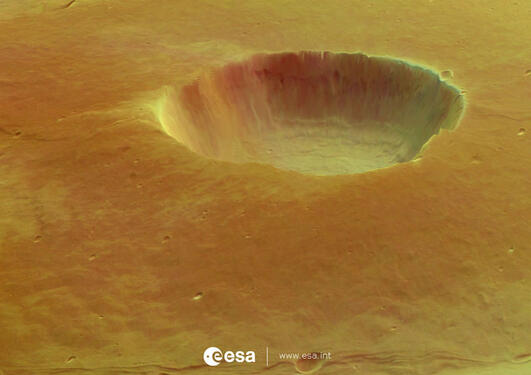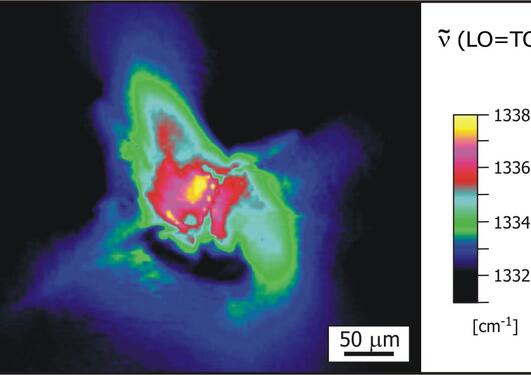News archive for Department of Earth Science
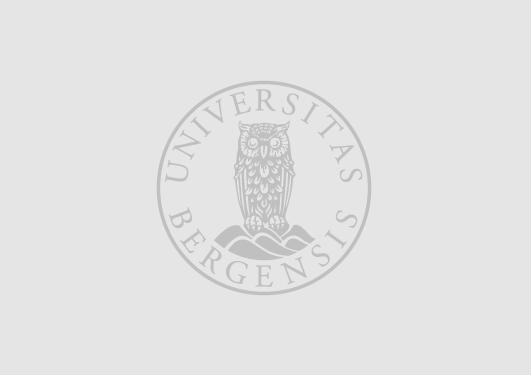
Charlotte Faust Andersen defended her PhD thesis Frieday 4th of February at the Department of Earth Science, University of Bergen.
The International Continental Scientific Drilling Program (ICDP) has recently started a drilling campaign in the Dead Sea looking for evidence of life in an extreme hypersaline environment.

Jo Brendryen defended his PhD-thesis 07. January 2011 at the Department of Earth Science, University of Bergen.
Mohammad Reza Saberi defended his PhD thesis Tuesday 9th of November 2010 at the Department of Earth Science, University of Bergen.

CGB Director, Rolf Birger Pedersen is interviewed in New Scientist about some of the latest discoveries on Earth's deep biosphere.
The paper presents the 2008 discovery of Loki’s Castle, the most northerly identified black smoker yet identified, and its unique vent fauna.
CGB researcher is an expert participant on an IODP cruise to the South Pacific.

BBC Science and Environment News highlights a recent article written by Daniel Fliegel et al in Earth and Planetary Science Letters.
Last night the Bergen Research Foundation (BFS) awarded its annual awards, which are aimed at recruiting outstanding young researchers.
Analytical investigations of the Barberton Scientific Drill core are now in full swing. Back in summer 2008 scientists from CGB and the Africa Earth Observatory Network (AEON), at the University of Cape Town, S Africa extracted 800m of drill core containing rock material from the early Archean, a very important but little studied period in early Earth’s history.
The final details are being organized for this summer’s research cruises.

Christine Euler defended her PhD-thesis 18. June 2010, at the Department of Earth Science, University of Bergen
Studies of the earliest life forms on Earth can provide insights into how to look for traces of possible life on Mars.
The Centre for Geobiology will organize a Raman-spectroscopy short-course June 2010.

On Friday 7. May Vibeke Bruvoll defended her PhD-thesis at the Department of Earth Science, University of Bergen
This is the abstract of a seminar given by Nicola McLoughlin, during a month-long stay in South Africa at AEON September 2009.

If 2008 was the year of discovery – then for us 2009 has been a year of development.
Pages
- December 2025 (3)
- November 2025 (1)
- October 2025 (4)
- September 2025 (1)
- August 2025 (1)
- February 2025 (3)
- January 2025 (1)
- December 2024 (1)
- November 2024 (1)
- October 2024 (3)
- September 2024 (4)
- August 2024 (3)
- July 2024 (3)
- June 2024 (2)
- April 2024 (3)
- March 2024 (1)
- February 2024 (2)
- December 2023 (2)
- November 2023 (4)
- October 2023 (2)
- September 2023 (1)
- August 2023 (3)
- July 2023 (4)
- June 2023 (1)
- April 2023 (4)
- March 2023 (2)
- February 2023 (1)
- January 2023 (2)
- December 2022 (1)
- November 2022 (8)
- October 2022 (1)
- August 2022 (2)
- June 2022 (6)
- May 2022 (1)
- April 2022 (1)
- March 2022 (3)
- February 2022 (2)
- December 2021 (2)
- November 2021 (2)
- October 2021 (1)
- September 2021 (2)
- July 2021 (1)
- June 2021 (9)
- May 2021 (1)
- February 2021 (1)
- September 2020 (2)
- June 2020 (2)
- May 2020 (1)
- April 2020 (2)
- November 2019 (1)
- October 2019 (1)
- April 2019 (1)
- February 2019 (4)
- January 2019 (2)
- December 2018 (1)
- October 2018 (6)
- June 2018 (3)
- March 2018 (1)
- February 2018 (1)
- January 2018 (2)
- December 2017 (2)
- November 2017 (4)
- October 2017 (3)
- September 2017 (1)
- July 2017 (1)
- May 2017 (1)
- March 2017 (1)
- February 2017 (1)
- January 2017 (2)
- December 2016 (1)
- November 2016 (1)
- October 2016 (2)
- September 2016 (2)
- August 2016 (1)
- June 2016 (3)
- May 2016 (3)
- April 2016 (1)
- March 2016 (1)
- January 2016 (1)
- November 2015 (2)
- October 2015 (3)
- June 2015 (2)
- May 2015 (1)
- March 2015 (1)
- February 2015 (1)
- November 2014 (1)
- October 2014 (4)
- May 2014 (2)
- March 2014 (1)
- January 2014 (1)
- December 2013 (4)
- November 2013 (1)
- October 2013 (5)
- August 2013 (1)
- June 2013 (1)
- May 2013 (2)
- April 2013 (2)
- February 2013 (1)
- January 2013 (3)
- December 2012 (1)
- October 2012 (1)
- September 2012 (1)
- August 2012 (1)
- March 2012 (1)
- January 2012 (1)
- December 2011 (2)
- November 2011 (5)
- October 2011 (4)
- September 2011 (6)
- July 2011 (3)
- June 2011 (6)
- May 2011 (4)
- April 2011 (2)
- March 2011 (5)
- February 2011 (2)
- January 2011 (1)
- December 2010 (2)
- November 2010 (3)
- October 2010 (2)
- September 2010 (1)
- June 2010 (4)
- May 2010 (2)
- April 2010 (3)
- March 2010 (3)
- February 2010 (3)
- January 2010 (3)
- September 2009 (1)
- August 2009 (2)
- July 2009 (1)
- June 2009 (4)
- March 2009 (2)
- February 2009 (1)
- January 2009 (1)
